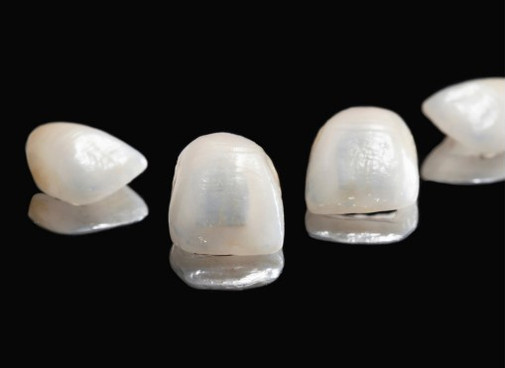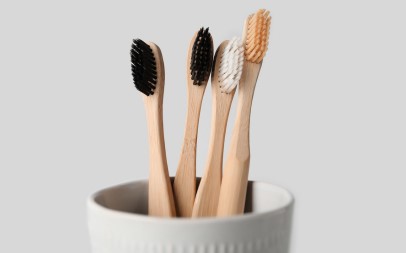Dental Veneers
- Dr. Erin Currier
- Nov 23, 2023
- 4 min read
Updated: Apr 16, 2024
What are dental veneers?
Veneers are aesthetic restorations that are used to change the appearance of your teeth by altering the colour, shape, and alignment. They are thin shells which are bonded to the front surface of your teeth and can be made of a composite or porcelain material. You can have a veneer placed on a single tooth or multiple teeth.
Veneers can be useful for correcting discolouration, gaps, shape and misaligned teeth.
What is the process to getting veneers?
1. Consultation
First you will meet with one of our dentists for an aesthetic consultation
We will discuss your concerns and treatment goals
Your teeth and gums will be examined to assess their health and suitability for treatment
Photographs and scans may be taken of your teeth to aid in discussion of treatment options and for treatment planning purposes
We will discuss your treatment options and answer any questions you have
You will be provided with a treatment plan
2. Trial Smile
Once you have decided on a treatment plan that suits your individual needs and goals we will work with you to create your ideal smile based your preference for colour, shape, size etc of your veneers. From here we can preview and trial your smile before you get started on treatment. This ensures you are completely happy with your proposed treatment before any treatment is started.
3. Treatment
Composite Veneers:
For composite veneers you will be booked for an appointment for the placement of the veneers on your teeth. Most composite cases are completed in a single appointment.
Porcelain Veneers:
Teeth will be prepped and shaped (if needed) by your dentist, scans of the prepped teeth will be sent to our ceramic lab for the construction of your personalised veneers. Temporary veneers will be placed on your teeth which will be in place for approximately 2 weeks.
You will come back 2 weeks after the preparation appointment for the fit of your final porcelain veneers
Are veneers suitable for everyone?
At Higgins Dental we believe that one size does not fit all. This means that veneers will not be a suitable treatment for every circumstance or every patient. This is why we do an extended aesthetic consultation with you to discuss all your treatment options and create a bespoke treatment plan that you are comfortable with and will allow us to achieve your individual cosmetic needs in a safe manner.
Veneers can be used for those with healthy teeth and gums who want to address cosmetic issues like stains, chips, gaps, and minor misalignments. If your dentist believes too much tooth structure will need to be removed to achieve a good aesthetic result alternative or additional treatment options may be recommended eg. Orthodontics.
What materials are veneers made of?
Veneers are generally made of either composite resin or porcelain materials, each material has its own advantages and disadvantages.
Composite veneers are made from a tooth-coloured resin material, often requiring just one appointment for placement. They are a suitable choice for minor cosmetic improvements, offering a quick solution to conceal issues like small chips and gaps. Composite is however more prone to staining and chipping over time and generally requires more regular replacement than porcelain.
Porcelain veneers are crafted from high-quality dental porcelain, Porcelain is a very durable, strong and stain resistant material known for its natural appearance. They offer a long-lasting result, and are more suitable for more complex aesthetic corrections. Porcelain veneers usually take 2-3 appointments to complete.
Both options can provide natural-looking, highly personalised and customised results. Ultimately, the choice between materials depends on your goals and individual circumstances, this can be discussed with your dentist at your consultation appointment.
How long do they last?
It is important to remember that veneers are a life long commitment and as with any treatment maintenance and replacement will need to be done over time. This is an important factor to consider before committing to any aesthetic dental treatment.
Caring for your veneers ensures their longevity and maintains your new smile! You’ll be given some personalised care tips at our clinic to help you maintain your results so that you can enjoy them for as long as possible. Practicing good oral hygiene is essential. Regular brushing and flossing help prevent plaque buildup, which can lead to gum disease and potential veneer damage.
If you have a habit of clenching or grinding your teeth, a night guard may be needed to protect your veneers from damage caused by these actions.
Regular dental check-ups are also crucial, allowing your dentist to monitor the condition of your veneers and address any concerns promptly. With proper care, veneers can maintain their appearance and functionality for many years, composite veneers will generally require replacement every 5 years, whilst porcelain veneers every 10-15 years- this timeframe however can vary and is dependent on individual circumstances, care and maintenance.
Does tooth structure need to be removed?
At Higgins Dental we always ensure we practice minimum intervention and safe dental procedures. We always aim to maintain as
much tooth structure as possible which is essential for long term dental health and success of any dental treatment.
The need for removal of tooth structure prior to placement of veneers is dependant on many factors. Often very minimal amounts of tooth structure will need to be shaped or adjusted to allow for the fit of the veneer over the front surface of the tooth, to allow for material thickness and to achieve the desired aesthetic results. However, the amount of tooth structure that needs to be adjusted can vary based on factors like the smile design, the thickness of the veneers, the shape of your original teeth, the presence of existing restorations, and the amount of tooth structure that is already present.
While tooth surface adjustment may be necessary for some patients, it’s important to note that it’s not always required. Sometimes, we can place the veneers without removing any tooth structure at all! Sometimes, we alter the position of teeth with orthodontics prior to veneers to minimise the amount of tooth preparation required eg. when teeth are very crowded. During your consultation this will be discussed with you based on your individual case.









Kommentare